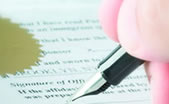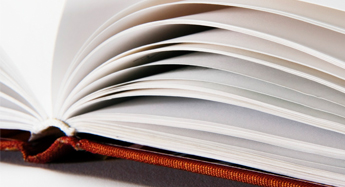'Legal professional privilege' 1: Legal advice privilege
'Legal professional privilege' is a general expression that covers two principles of English law: 1) legal advice privilege and 2) litigation privilege. The former attaches to communications between solicitor and client only, but the latter can protect reports by third parties prepared on the instructions of a client or lawyer for the purposes of litigation. In the former case, the privilege protects all communications whether related to litigation or not, but in the latter case it protects only those documents or other written communications prepared with a view to litigation.
This note explains legal advice privilege:
Basic principles

Legal advice privilege covers confidential communications between a lawyer and the lawyer's client which come into existence for the purpose of giving or obtaining legal advice. It comes into existence without regard for whether litigation is contemplated or pending. Furthermore, legal advice privilege comes into being for communications between client and solicitor whether made directly or through an agent. This privilege protects these documents against a demand from a third party during litigation for production and inspection.
Qualifying communications
To attract legal advice privilege the communication must have the dominant purpose of the giving or receiving of legal advice. However, legal advice is broader than advice on the state of the law:
…legal advice is not confined to telling the client the law; it must include advice as to what should prudently and sensibly be done in the relevant legal context1 .
But there are limitations:
…to extend privilege without limit to all solicitor and client communications upon matters within the ordinary business of a solicitor and referable to that relationship is too wide…
The leading decision on the extent of legal advice is now that of the House of Lords in Three Rivers (No 6)2 . In this case, it was asked whether communications between the Bank of England, their solicitors and counsel, relating to the content and preparation of the 'overarching statement' submitted on behalf of the Bank to the Bingham Inquiry, qualify for legal advice privilege? Also, in relation to what sort of communications can legal advice privilege be claimed? The House of Lords (now the UK Supreme Court) said the existence of legal advice privilege depended on the "relevant legal context". Whether there is a relevant legal context depends on whether the advice relates to the "rights liabilities, obligations or remedies of the client either under the private law or under public law". Providing this is the case, the communication must also be such as to objectively expect legal advice privilege to apply by virtue of public policy. One such category of communication is the "presentational advice" at issue in the Three Rivers case, the "relevant legal context" being the Bingham enquiry.
Who is the lawyer?

Legal advice privilege protects communications between a lawyer and the lawyer's client. It is clear that the lawyer is a practising barrister or solicitor. However section 280 of the Copyright, Designs and Patents Act 1988 also confers privilege on communications relating to the protection of any invention, design, technical information, or trade mark, or as to any matter involving passing off with "patent agents" as defined by subsection (3). For "in-house" patent attorneys, the relevant part of this subsection is (a) which applies to registered patent attorneys (ie those registered in the UK or "a person who is on the European list".
The group barristers and solicitors includes those working in-house, provided it is in their capacity as lawyers and not as executives. Foreign lawyers are also protected by legal advice privilege for the purpose of English law. This form of privilege also extends to trainees and paralegals, so long as they are supervised.
The client and client experts
In the absence of litigation, communications with third parties are not privileged. Documents prepared by third parties for the purpose of assisting a client to take legal advice are also not privileged. Consequently, advice taken by a client from an expert in the absence of litigation is not privileged. The picture is more complex when the expert is an employee of a corporate client but, since the Three Rivers series of cases, the definition of client has narrowed and great care needs to be exercised in determining who exactly the client is.
Three Rivers (No 5)3 (which again concerns the Bingham Inquiry but is not to be confused with Three Rivers (No 6), discussed above) concerns the status of communications arising between the Bank of England and their solicitors through a committee of three officials set up by the Bank (the 'Bingham Inquiry Unit'). The Court of Appeal held that, for the purposes of the inquiry, the Bingham Inquiry Unit was the solicitors' 'client' and that other Bank employees were third parties to that relationship. Any documentation prepared by other Bank employees, regardless of whether it was at the request of the solicitors or not, would be treated the same as documents prepared by independent third parties and therefore not protected by legal advice privilege.

Therefore, only those at the client engaged in the seeking and receiving of advice from external lawyers are entitled to legal advice privilege. Internal communications made by other employees that contributed to the seeking of that advice are not protected.
As a result of Three Rivers (No 5), when proceedings are not underway and not in reasonable prospect, great care should be taken when communicating with both third parties and internal employees such as experts, and in the creation of documents by these parties.
This article is adapted from "'Expert Privilege' in Civil Evidence" by Paul England (Hart Publishing).
If you have any questions on this article or would like to propose a subject to be addressed by Synapse please contact us.


Paul England
Paul is a senior associate and professional support lawyer in the Patents group based in our London office.

